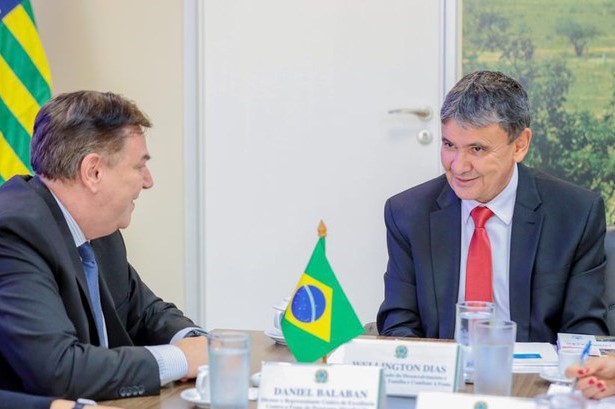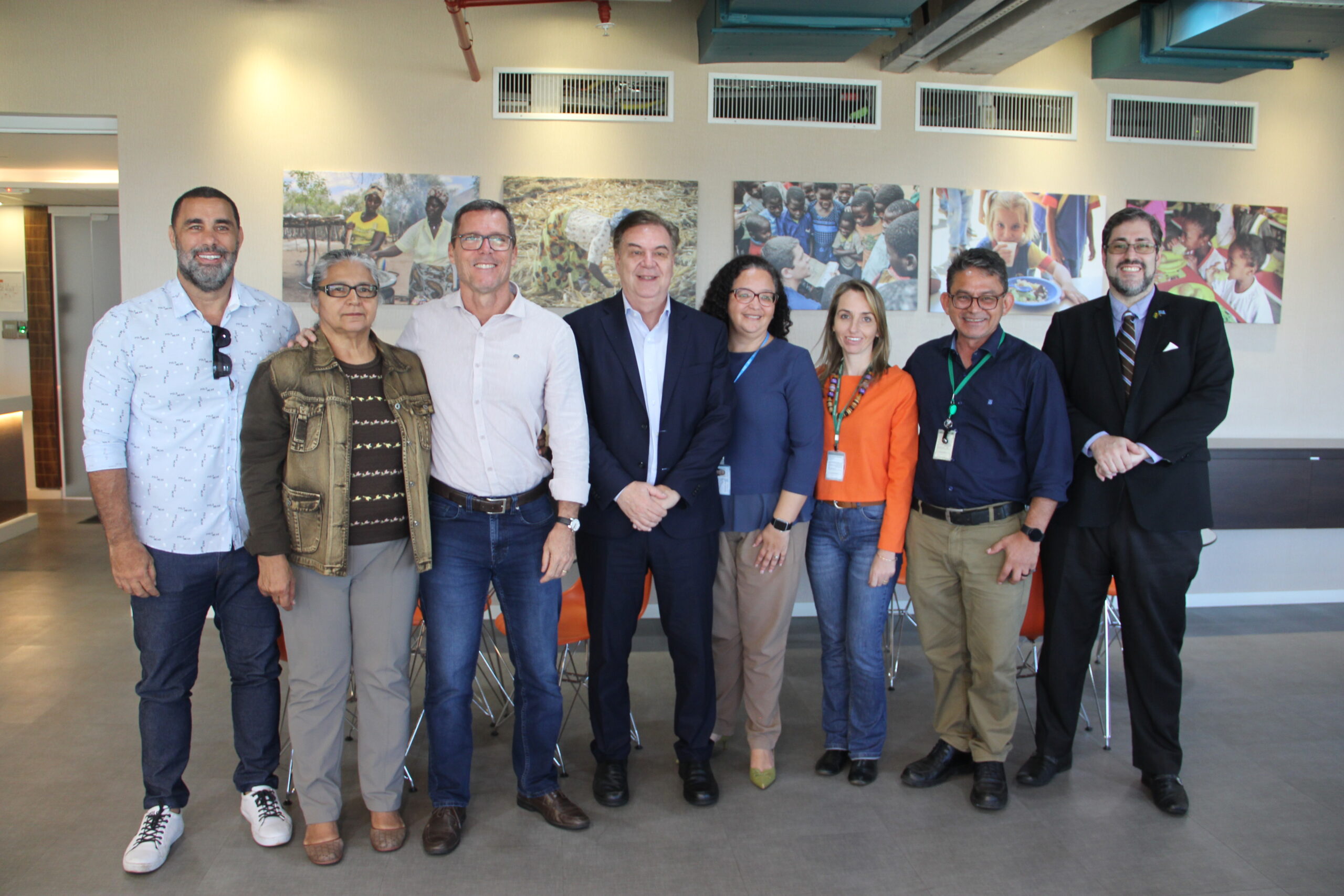
Structured actions to fight hunger, promote adequate eating habits and increase the value of family farming were the predominant themes in the meetings between the director of the WFP Centre of Excellence against Hunger Brazil, Daniel Balaban, the Brazilian Minister of Social Development, Wellington Dias, and the president of Emater-DF, Cleison Duval, which took place this week. The Centre of Excellence has over a decade of experience in developing public policies to fight hunger and inequality and in sharing these successful experiences through international cooperation, and ministries and public companies are strategic partners in this work.
On Monday, 24 April, Daniel Balaban met Wellington Dias, Minister of Development and Social Assistance, Family and Fight against Hunger, as well as representatives from the ministry’s technical teams. They discussed training actions to share knowledge on international hunger indicators adopted by the United Nations, with the aim of improving public policies. The idea is to engage public agents who work directly with citizens. “Brazil is an example to the world and we are ready to continue working together, helping other countries through good examples to fight hunger and malnutrition, so that we have a world free of hunger”, said Daniel Balaban after the meeting.
In addition, the two discussed proposals to coordinate social security programmes so that they can also generate income, especially for family farmers. The Centre of Excellence also presented some of the cooperation projects that are being developed in Africa, such as the construction of cisterns in Tanzania under the Beyond Cotton Project, executed in partnership with the Brazilian Cooperation Agency (ABC, in Portuguese) and the Brazilian Cotton Institute (IBA, in Portuguese). The WFP Centre of Excellence is also participating in the international working group of the Interministerial Chamber of Food Security and Nutrition (CAISAN, in Portuguese), as the Centre supports Brazil in the preparation for the UN Food Systems Summit.
Support for rural producers

With the president of Emater-DF, Cleison Duval, the importance of taking the rural producer registration system, as adopted by Emater, to Latin American countries was discussed. The organization carries out sustainable rural development actions and promotes food security, assisting over 15,000 rural producers in the region. “The idea is to try to get Emater-DF to help create and implement this model system in the countries in the region, as well as inserting the institution within these transformations in the countries, through the expertise that they have,” said Daniel Balaban.
The WFP is the largest food buyer in the world, with US$ 1.6 billion in purchases in 2018, including an increasing share each year of family farming products, and works to encourage governments to have a structure to identify and understand farmers. In this sense, Emater-DF has a lot to offer. “It is necessary to know the farmers, so that they are objects of public policies that ensure that the prices practiced are fair,” pointed out Eliene Sousa, Project Coordinator at the WFP Centre of Excellence.




